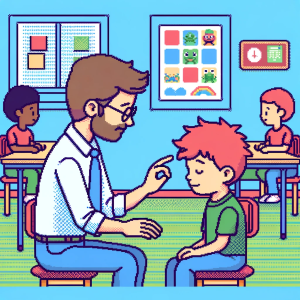
The Critical Link Between Social Media and Youth Mental Health: Insights and Solutions
The use of social media among young individuals is pervasive and its impact on mental health and wellbeing is a growing concern among psychologists and health professionals. This blog delves into the research article “The steps that young people and suicide prevention professionals think the social media industry and policymakers should take to improve online safety. A nested cross-sectional study within a Delphi consensus approach” published in Frontiers in Psychiatry.
Understanding the Concerns
Suicide ranks as a leading cause of death among youth globally. Self-harm, often a precursor to suicide, is also prevalent in this demographic. The expansion of social media has brought forward concerns about its role in exacerbating psychological distress, promoting harmful content, and possibly leading to imitative harmful behaviors. However, amidst the risks, there are potential benefits like community building, support seeking, and non-stigmatizing spaces for discussing mental health issues.
Study Overview and Methodology
The study employed a cross-sectional survey within a broader Delphi expert consensus study, aiming to understand and align the views of young people and suicide prevention professionals on current social media safety strategies and further actions needed by the industry and policymakers to enhance online safety. The study’s comprehensive approach included literature reviews, consultations, and a detailed analysis of survey responses from both young individuals and professionals.
Key Findings: A Call for Restriction, Education, and Collaboration
- Limited Consensus on Current Safety Strategies: There was a noticeable divide on the effectiveness of current safety measures employed by social media companies. Yet, there was a significant agreement on the necessity of restricting self-harm and suicide-related content and having clear policies for managing harmful or graphic content.
- Artificial Intelligence and Resource Allocation: A moderate agreement existed on utilizing artificial intelligence to identify and assist users at risk, pointing towards a future where technology might play a pivotal role in suicide prevention.
- Regulatory and Educational Support: Over half of the professionals and nearly half of the young respondents agreed on the need for governmental regulation of social media. A strong consensus emerged on the importance of governments requiring schools to educate students on safe online communication and advocating for international collaboration to synchronize efforts.
Discussion and Implications for School Psychologists
The study underscores the complexities of minimizing online risks while leveraging the potential benefits of social media. For school psychologists and related professionals, the implications are profound:
- Policy Advocacy: Encouraging the development of clear, enforceable policies and guidelines that social media companies should adopt to manage harmful content effectively.
- Educational Programs: Promoting and integrating online safety and digital literacy into school curricula to empower students with the knowledge and skills to navigate social media responsibly.
- Fostering Collaborative Networks: Supporting initiatives that foster collaboration between schools, families, industry, and policymakers to create a unified front in promoting online safety.
Conclusion
The intricate relationship between social media, self-harm, and suicide among youth is evident. While the digital age poses new challenges, it also offers unprecedented opportunities for intervention and support. For school psychologists and related professionals, staying informed about these dynamics and actively participating in multidisciplinary efforts is crucial in shaping a safer online environment for young individuals.
Continuous dialogue, research, and policy adaptation are essential in the rapidly evolving landscape of social media and youth mental health. The study provides a foundational step towards understanding and addressing the needs and perspectives of both young people and professionals, paving the way for more informed, effective, and collaborative approaches to online safety and youth mental health.
Empower Your Mind, Transform Education!
Leap into a world of groundbreaking school psychology for just $50 per year. With This Week in School Psychology, get the most stimulating content delivered directly to you. Benefit from time-saving summaries and impactful insights. Your support fosters a more enlightened educational sphere. Don’t just read about change; be the change. Subscribe now for a year of empowerment!



